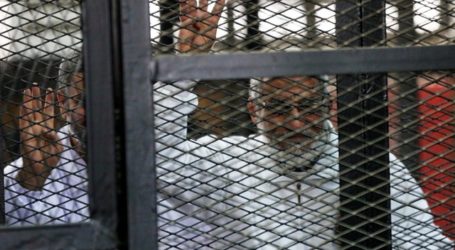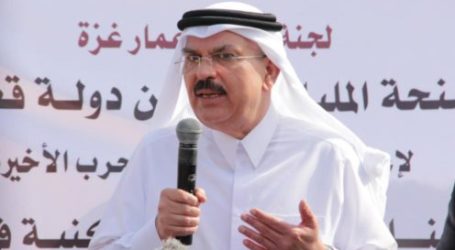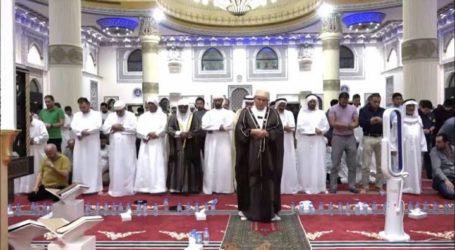EGYPT FREEZES MUSLIM BROTHERHOOD FUNDS
 Cairo, 7 Ramadan 1434/15 July 2013 (MINA) – Egypt’s public prosecutor has issued a temporary freeze on the assets of senior Muslim Brotherhood leaders as well as senior leaders of pro-Morsi parties and groups, Sunday.
Cairo, 7 Ramadan 1434/15 July 2013 (MINA) – Egypt’s public prosecutor has issued a temporary freeze on the assets of senior Muslim Brotherhood leaders as well as senior leaders of pro-Morsi parties and groups, Sunday.
The freeze is temporary and pending investigations in ongoing cases related to events in al-Mokatam, al-Nahda square, and the Republican Guards Club, all venues of clashes during the aftermath of the June 30 protests, Aljazeera quoted by Mi’raj News Agency (MINA) as reporting.
The freeze will affect Mohamed Badie, the general guide of the Muslim Brotherhood, as well as Khairat al-Shater, Mohamed Ezat, Mahi Ekef, Saed ElKatatni, Essam ElErian, Mohamed ElBeltagy – all members of the Islamist Muslim Brotherhood group.
Senior leaders of the pro-Morsi coalition, including Essam Sultan, Assem Abdul Majed, Safwat Hegazy and Hazem Abu Ismail, will also be affected by the freeze.
Bassam al-Zarka, the deputy chairman of the Salafist al-Nour party, told Al Jazeera that he did not know the whereabouts of Morsi, asserting that the subject of the former president’s current location was “surrounded with secrecy”.
“The subject of Dr. Morsi is surrounded with secrecy. However, in such issues transparency is expected. But, unfortunately, this is the situation of Egypt now,” he said.
He also said that the party wants parliamentary elections before amendments are made to the constitution.
New Foreign Minister
Meanwhile, Nabil Fahmy, a former Egyptian ambassador to the United States, accepted on Sunday the post of foreign minister in the interim government being put in place after the army overthrew Morsi earlier this month.
Fahmy is a member of the opposition, AlDostour [The Constitution] Party, led by Mohamed ElBaradei.
ElBaradei, who led the country’s main opposition group in criticism of the Muslim Brotherhood, was sworn-in the same day as the country’s interim vice president.
In an interview given to Al Jazeera on the one-year anniversary of Morsi’s presidency, Fahmy was critical of the leader’s foreign policy.
Fahmy argued that foreign policy under Morsi had been motivated by Egypt’s economic challenges, and the need to attract investment.
Fahmy also highlighted Morsi’s moves during the Israeli assault on Gaza in November 2012.
“I believe Morsi initially succeeded in calming the situation on the war front between Israel and Gaza,” he told Al Jazeera.
Morsi’s Muslim Brotherhood have rejected offers to become a part of the new cabinet, vowing to continue defying what they say is a military coup. (T/P09/E1).
Mi’raj News Agency (MINA).








